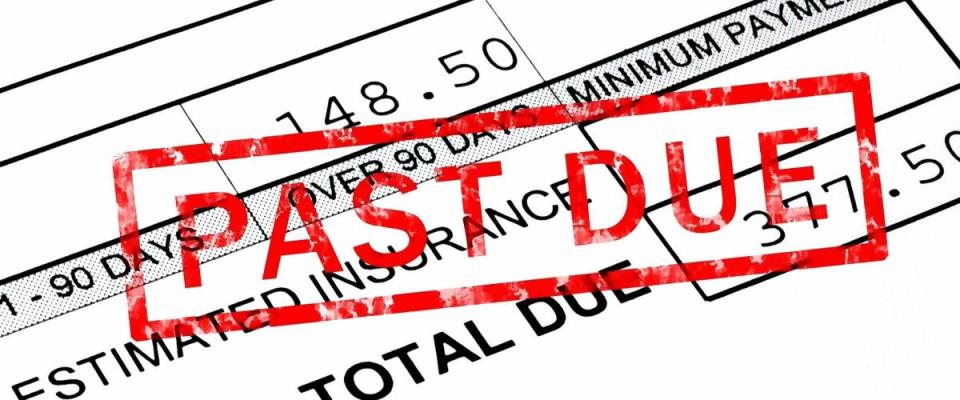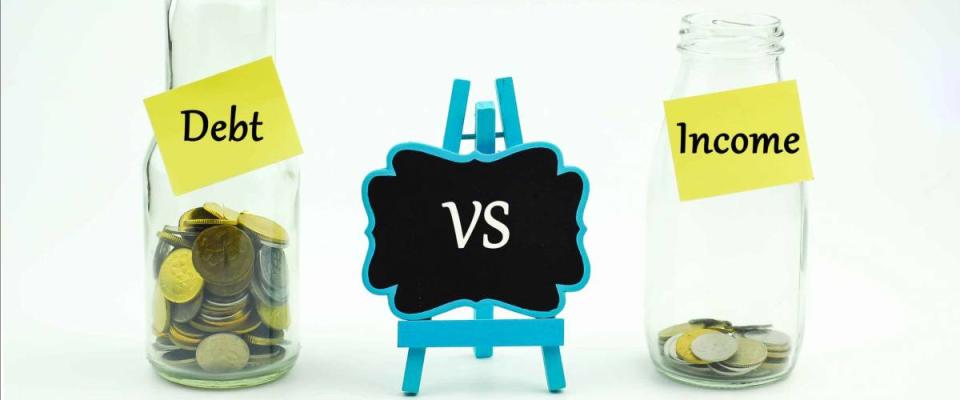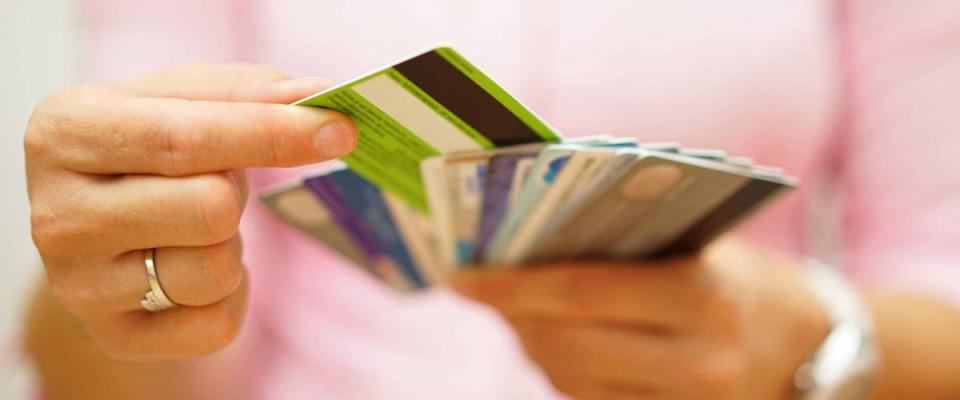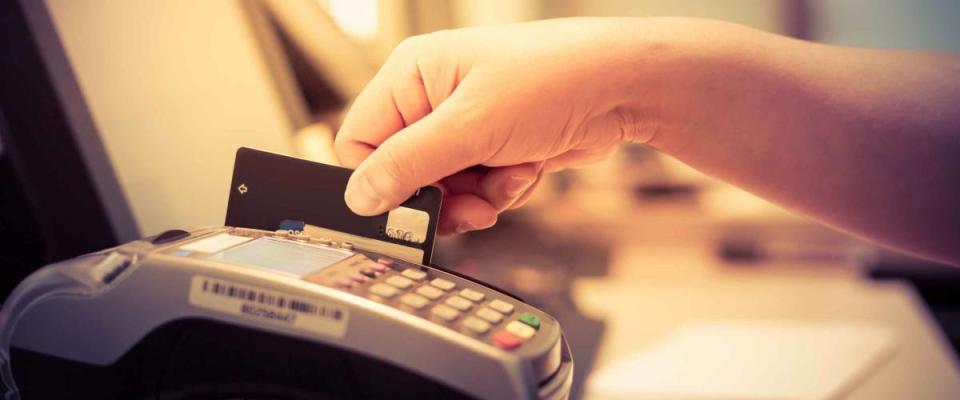7 signs you may have too many credit cards

It sounds like the set-up to a joke: how many credit cards is too many?
But if you’ve been asking yourself this question, you may not be finding any humor in your situation.
One American holds four credit cards on average, according to a 2019 report by Experian, a consumer credit reporting company. But many people have even more cards in their name.
If you’re wondering if you’re toting too much plastic in your pocket, there are some clear signs that your credit card collection has gotten out of control.
How to know if you have too many credit cards

There’s no right answer to how many credit cards you should have. The right amount varies person to person, depending on their borrowing needs and how well they can manage multiple cards.
If you’re starting to feel like it’s a full-time job just keeping track of what you spend — and what you owe on each card — it may be time to reevaluate your credit card count.
Here are some clear signs that you have too many credit cards.
1. You’re struggling to keep up with your annual fees

The average annual fee for credit cards is $147, based on analysis done by ValuePenguin. But each card varies by type, with rewards cards costing closer to $200 a year.
If, like many Americans, that means you have an average of four credit cards, that means you could be paying close to $800 in annual fees every year.
If that sounds like too much or you have even more than four cards on the go, you may want to consider paring down your plastic.
You may not even remember how much you’re paying every year just to keep your credit card active. In that case, you may find it helpful to go through your records and add up all your annual fees.
If you have a travel, rewards or retailer credit card, ask yourself if you think you’re getting your money’s worth in perks.
That extra cash you’re paying every year may go a little further in a high-yield savings account.
2. You forget to pay off your cards on time

If your wallet is bursting at the seams trying to contain all your credit cards, you may feel like you’re playing a game of whack-a-mole trying to pay (at the very least) your minimum balances off each card every month.
If it takes an intricate schedule to keep track of your various due dates, it may be a sign you’re working with too many cards.
Most credit card companies offer an autopay option, but that’s not helpful if you forget you made a purchase last month with one of your seldomly used cards.
If you have more than 4 or 5 credit cards, you may find it challenging to keep track of what you owe and when it needs to be paid.
This can result in having to pay late fees and a hit to your credit score.
3. You’re paying late fees every month

If you’re regularly forgetting to pay all of your bills on time, you are likely losing hundreds of dollars a year in late-payment charges.
As of last year, the Consumer Protection Finance Bureau increased the amount credit card companies can charge you in late fees.
While your credit card company can’t legally charge you more than the balance you’re carrying, these charges can add up — especially if you have multiple cards on the go.
If you’re paying late fees every month either because you’ve completely missed the payment deadline or because you’re paying less than the minimum amount, it may be a sign you have too many cards.
4. You have a high debt-to-income ratio

Your debt-to-income ratio (DTI) is a tool lenders use to evaluate your ability to take on more debt. Essentially, this figure compares your monthly debt payments against your gross monthly income.
When you have a high DTI (higher than 43%), that tells lenders you’ll likely have a harder time keeping up with your monthly payments.
This elevates your risk as a borrower and makes you less likely to be approved for loans or approved for other credit cards in the future.
If you plan to apply for a mortgage loan down the line, lenders may look at both the balances you’re currently carrying on your credit cards and your card limits to get a sense of the worst-case scenario.
Just cutting back on the number of cards you have open may be all you need to lower your risk as a borrower.
5. Your credit utilization is high

There are five factors that influence your credit score, but credit utilization accounts for almost one-third of your score.
You can calculate your utilization by taking your total debt and dividing it by the amount of credit you have access to. So if you have three credit cards with limits of $5,000, $2,500 and $7,500 and you’re carrying a balance of $5,000 between them, your credit utilization is 33%.
The more credit you have, the more inclined you’ll be to use it. And when you spread out your spending over a handful of different credit cards, it can be easy not to notice your credit utilization ticking upwards.
Minimizing your number of credit cards can help you keep your credit utilization in check.
You should aim to have your percentage lower than 30%, but if you can reach 10%, that would be the best possible ratio for your credit score.
6. You’re charging more than you can pay off

Credit cards make it so easy: it just takes a tap, swipe or pin code to make a purchase. But if you’re consistently racking up charges without accounting for where the funds will come from, the balance on your monthly statement may shock you.
And if that’s happening with multiple credit cards, it won’t be long before you find yourself in hot water. This is especially true if we’re talking about rewards cards, which tend to have higher interest rates than traditional credit cards.
Cutting back on the number of cards in your wallet can help reduce the temptation to spend. And not spreading out your usage over too many cards can help you keep better track of your spending.
7. Banks are closing your accounts due to inactivity
Do you have cards you don’t even use at all? Maybe you signed up for a few new customer promotions and then put the card away to use for emergencies that never came.
But those credit cards you put on the shelf may not be as helpful as you think.
In fact, you may be harming your credit score. Many consumers don’t realize that credit card activity is another important factor that will be used to determine your overall score.
General inactivity can cause your credit score to drop, and lenders may factor your unused card’s limits into your credit utilization.
With credit cards you don’t think about or check often, you also face a risk of not noticing fraudulent charges or missing their annual fees being added to your balance.
Your best option is to close unused cards before the issuer does it for you.
A better way to deal with your debt

If you want to close down a few credit card accounts, but you don’t have the funds to pay them off, you may want to consider debt consolidation.
With credit cards, it can be hard to get out of the cycle of debt because they tend to have comparatively high interest rates compared to other borrowing options.
A personal loan with a lower interest rate may be just what you need to get rid of your credit card debt.

 Yahoo Finance
Yahoo Finance 